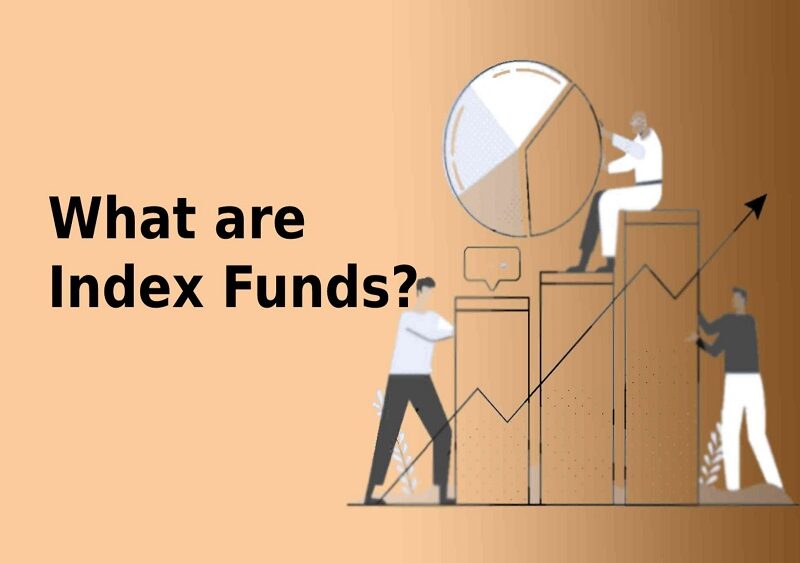The goal of index mutual funds is to track an index of the financial markets. These funds make investments in identical securities and at identical ratios to the benchmark index. A mutual fund that tracks the Nifty 50 index, for instance, will allocate its investments proportionately among the same 50 firms. So, they can give similar returns as the index does.
These funds are passively managed since they mirror the underlying benchmark index. The fund managers usually look to minimise tracking errors and mimic the index. As a result, there is no real decision-making by fund managers. Moreover, compared to actively managed funds, the expense ratio of these passively managed funds is substantially lower.
Index mutual funds (MFs) are one of the ways to diversify your investments. The composition of diverse stocks is what defines a benchmark index. Consequently, you can get at least as much as the benchmark return. Moreover, your portfolio can get well-diversified by investing in index funds.
Different Types of Index Funds
The following are the different types of index funds.
- Broad Market Index Funds: These investments mimic a significant portion of the market. These funds are often more tax-efficient and have a lower expense ratio. They provide exposure to a wide range of stocks or bonds.
- Market Capitalisation Index Funds: These funds are named after their market capitalisation. Market capitalisation-based index mutual funds, for instance, mimic the small mid, and large-cap indices. In this case, a sizable chunk of the money is invested in big, mid, or small-cap equities according to their market caps.
- International Index Funds: They track and imitate international index funds. International markets and enterprises are exposed through international index mutual funds, enabling investment diversification across developing nations and marketplaces.
- Earnings-based Index Funds: These funds follow indices according to their profits. They imitate value and growth indices. Businesses with strong profit-generating potential make up the growth index. Conversely, equities that are currently trading below their true value are included in the value index.
- Bond-based Index Funds: These funds are designed to resemble bond indexes. When compared to stock index mutual funds, these are investment alternatives with lower risk. These funds make investments in both business and government bonds. They may also have a maturity period.
Advantages of Investing in Index Funds
The following are the advantages of index funds
Low Expense Ratio: The low expense ratio of index funds is one of their main benefits. The costs that the fund house charges investors for administering the fund are known as the expense ratio. The fund manager of these passively managed funds only replicates the underlying index. So, the cost ratio is relatively low.
No Influence of Fund Manager’s Decisions: The fund manager doesn’t have to spend time and effort selecting the funds for the portfolio because they are passively managed funds that replicate the benchmark index. The analysis and choices made by the fund manager have a significant influence on the results of actively managed funds. That isn’t the case with index funds. The fund manager’s job is to simply replicate the benchmark with the least amount of tracking error.
Broad Market Exposure: Stocks that represent the market or sector as a whole make up a benchmark. Purchasing a fund that tracks the benchmarks exposes investors to a diverse selection of equities that characterise overall market activity.
Simple to Manage: Both the fund manager and the investor can easily handle these. Investors don’t need to monitor the fund manager and the fund’s performance. Investors may anticipate returns that are comparable to the benchmark returns because these funds mimic the benchmark.
Risks Associated with Index Funds
The following are the risks of investing in index mutual funds:
Reduced Flexibility: The fund management is not free to alter the portfolio’s allocation to lessen the negative effects during a market downturn. As a result, the fund manager has little flexibility with these funds.
Underperformance: There is a significant chance that these funds will do worse than the benchmark they are monitoring. This can be attributed to increased trading fees, expenditures, and tracking mistakes.
Tracking Error: One further major risk associated with index funds is tracking error. The inaccurate tracking of the underlying benchmark is referred to as a tracking error.
Conclusion
Mutual funds or exchange-traded funds (ETFs) that follow a benchmark index’s performance obligingly are known as index funds. Reputable mutual fund firms like Axis offer an extensive range of index funds. Nowadays, you can download a mutual fund investment app to invest in index funds. Broad diversification, low costs, tax advantages, and passive management are some of the advantages of index funds. Low adaptability, monitoring mistakes, and poor performance are risks. Although investors may find these funds to be wise investments, they are advised to conduct research and invest based on their risk appetite and financial goals.

